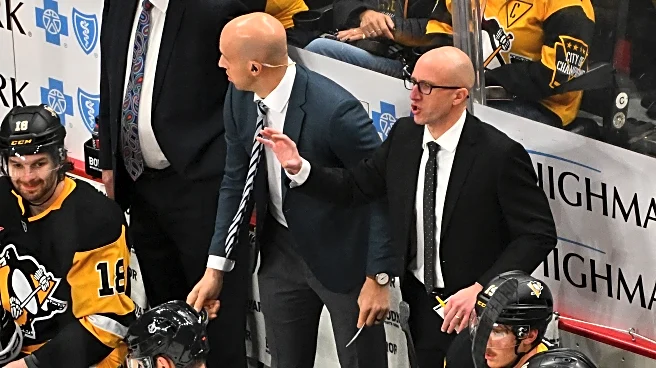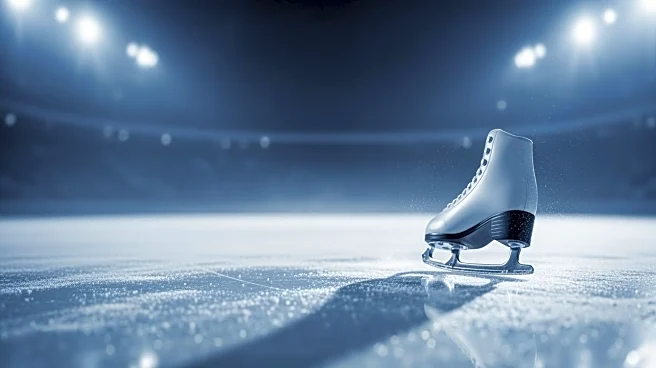Elliotte Friedman offered a written version of 32 Thoughts, with perfect timing since the Penguins just passed through Toronto and he has plenty of good nuggets to look at considering the national level
media gets the best and most information these days under the tight ship known as the Kyle Dubas front office.
A few thoughts on the most interesting/relevant thoughts:
4. I don’t know that there’s anything going on trade-wise with Mason Lohrei. But I do know that when a talented, young player like him sits four games in a row, others call and ask what’s up.
Lohrei is not the absolute ideal style of defenseman that the Penguins need (he’s poor defensively, doesn’t kill penalties and isn’t established in a role against top competition), but then again Lohrei is a living and breathing left shot NHL caliber defenseman and a very good puck mover. Pittsburgh should probably at least be a little interested in monitoring what is going on there, even though Boston might not want to move him and the Pens probably don’t have anything they would part with that the Bruins would want. Still, any morsel about a talented defender being available has to command attention in Pittsburgh (and, in about 20 other NHL cities..)
12. An undrafted free agent picking up steam is soon-to-be 24-year-old Belorussian Vitali Pinchuk. Point-per-game player in the KHL, big, left-shot centre. There are several teams looking at him.
Maybe something to put deep in the files for now. Pinchuk played in the OHL in the 2019-20 season then stayed in Russia after COVID to become a top player in the KHL.
21. When Dan Muse was hired to coach Pittsburgh, one person who knew him said he wondered if Muse was “too nice” to be a successful head coach. Everyone knew his work ethic, his love and knowledge of hockey, but would he be able to command respect and bring the hammer down on a treading-water Penguins team with such dominant personalities?
Despite what happened Tuesday in Toronto, the early returns are strong. There’s a long way to go, and injuries are piling up, but Pittsburgh is better than expected and the kids look good. I posed the “too-nice” question to 19-year-veteran Kris Letang, who had a great answer.
“Sid, Geno and I have been around 20 years,” he replied. “We’ve seen all kinds. You know what matters? Can you make us believe in what you’re trying to do?” Letang called Muse’s training camp “the hardest I’ve ever had,” saying that the coach made every drill a competition with the losers getting bag skated. (Letang added that, due to the influence of fitness coach extraordinaire Andy O’Brien, those hard skates involved more crossovers as opposed to stopping-and-starting to avoid early-camp groin injuries.)
He also said Muse made sure to inform players of the drills before on-ice sessions began so there was no standing around and placed the onus on them not to forget what to do. Wins matter. It’s hard to sell your vision when you are losing. But Muse certainly got his veterans’ attention.
Always interesting to learn more about Muse, no surprise that the guys who have had him in the NHL see Muse in that ‘good cop’ type of special teams assistant coach and wonder how it will translate. Muse has only been a head coach at any level for five seasons (two in the USHL and three in the US National Program) and the NHL is a long way above those levels. We’ve seen him grow and admit some mistakes on the job in terms of light usage of Crosby in games that got away from him, but all initial impressions of the person and program he’s implemented so far have been positive.
22. Letang’s best quote was this one: “I said to Sid, ‘It’s tough out there. All that extra skating when you lose.’” Crosby replied to him: “My team didn’t lose.”
Classic Crosby quote.
23. Erik Karlsson is killing penalties again. It’s early, but he’s averaging 1:48 per game shorthanded, fourth-highest of his career — on the league’s 10th-best unit entering Wednesday’s games. He did it sporadically the last few seasons, but this is, so far, a bigger commitment. Karlsson said Muse is trying to challenge players with more responsibility, or different responsibilities than they were used to.
“I see him say, ‘Maybe you can’t help us the way X player can, but you can help us in another way.” One example was of a player who wasn’t physically dominant, but had a great stick. He encouraged that player by saying, “If you get the same results with your stick that the other player gets with his body, that helps us.”
The fresh challenges can keep it new, but as mentioned in the recaps putting Karlsson on the PK can also be seen as necessary too. Someone has to kill penalties, good to see it presented as a challenge.
24. Karlsson’s off to a strong start, and we’ll see where this goes. His dollars are now very manageable, and may be even more enticing with the cap’s rise. He’s got control of his future, but the better he goes, the more options there could be — including finishing his term in Pennsylvania.
Karlsson has never changed teams in the middle of a season, he’s very deliberate with his career decisions. I wouldn’t expect that to be any different this year.
To the salary considerations, Karlsson is owed $11.5 million in real money for the remainder of his contract since the Pens have already paid his 2025-26 signing bonus. He “only” makes $1.5 million in salary during the 2026-27 season after a July 1, 2026 $7.5 million signing bonus. That’s attractive to other teams, but could also present a trade hurdle next summer. If the Pens keep him as of July 2nd, it would make sense that they would want a favorable trade due to picking up the majority of the money he’s owed. That may or may not present issues for other teams looking to strike the best deal they can. It could also draw the desire to strike a deal to trade Karlsson before July 1, so that the new team picks up the tab on the signing bonus.
Long way to say, the situation might be slanted towards Karlsson remaining a Penguin for the full-term. Between his no movement clause and the way the actual money breaks out, there’s not a clear path for a trade, before getting into team performance and career desires that might come into play down the line.
25. Deeper down their organization, there is an unusual story involving one of Pittsburgh’s prospects: Emil Pieniniemi. A defenceman drafted 91st in 2023, he had 60 points in 60 games last season for OHL Kingston. Pieniniemi did not make the big club in training camp (as expected) but where this went sideways is he objected to going to ECHL Wheeling as opposed to AHL Wilkes-Barre/Scranton. He’s gone back to Finland, and is suspended by the Penguins. At issue is the belief that his skillset would be better served developmentally in the AHL than the ECHL, that the latter league isn’t the right place for him at this time. The Penguins are holding firm.
This situation has dragged out for a month now, the organization attempted to assign the rookie defender to the ECHL on October 5th and he’s been in the wind since that point. The Pens hold the cards here, they could toll Pieniniemi’s contract if they choose. The Penguins do feel the ECHL is the right place for him with the enhanced development that they are placing with Wheeling, the player disagrees. As of now, he stays in limbo until one side backs down. Pittsburgh could loan him to a Finnish team but they don’t have to and haven’t yet.
27. Not every team cares about the 10-game mark for rookies. What they all do care about is 40 on the roster. That’s where you accrue a season towards unrestricted free agency, and decisions will be made about who really gets to stick around.
Playing ten games to start the entry level contract takes up a lot of attention since it is often where teenaged players get sent back to junior. Being on the roster for 40 games is potentially a more important managerial checkpoint.
Take Ben Kindel, for instance, who at this point looks like he will be staying for the foreseeable future. If he stays on the roster (and IR counts) for 40-games, he accrues a year of service. Players reach unrestricted free agency when they get seven years or are 27-years old, whichever comes first. For the overwhelming majority of players the age comes into play. But when you talk about teenaged NHLers, the years become the key point.
Assuming that Kindel graduates into becoming a full-time NHL player for the duration, he will hit his seventh season and qualify for UFA after 2031-32, just prior to his 25th birthday. Granted, the Pens will have the opportunity to lock him up to a long-term deal by that point if all remains going on the trajectory it’s on, it just remains an angle to have in mind.
Similar with Brunicke, if he plays one more NHL game this season his ELC starts now, it would slide if the Pens return him to juniors now. That speeds up his contract by a year to make him a RFA after 2027-28 (instead of 2028-29 if he goes back). Not the biggest deal in the world. But if Brunicke stays on the roster for 40 games, and is also an NHL player in the following seasons, he too would be on schedule to become an unrestricted free agent earlier than most after 2031-32, months after his 26th birthday.
The tightrope to walk is weighing player development and contributions against stretching that team control out. If the Pens send Brunicke back now, he won’t become a UFA until 2033. If they keep him, he could be on track to get there in 2032. (Of course, next year Brunicke could conceivably be in the AHL for half of the season and not accrue a year towards UFA and get back to qualifying in 2033, when he will be 27 years old).
The difference of a one year might not seem like the biggest deal in the world right now in 2025, and perhaps it won’t be — it’s just another consideration that managers will have as they make these decisions. If Kindel keeps scoring goals and playing well, the trade off for putting him on track for early UFA is a nice problem to have down the roads. Nice problems are still problems though.









